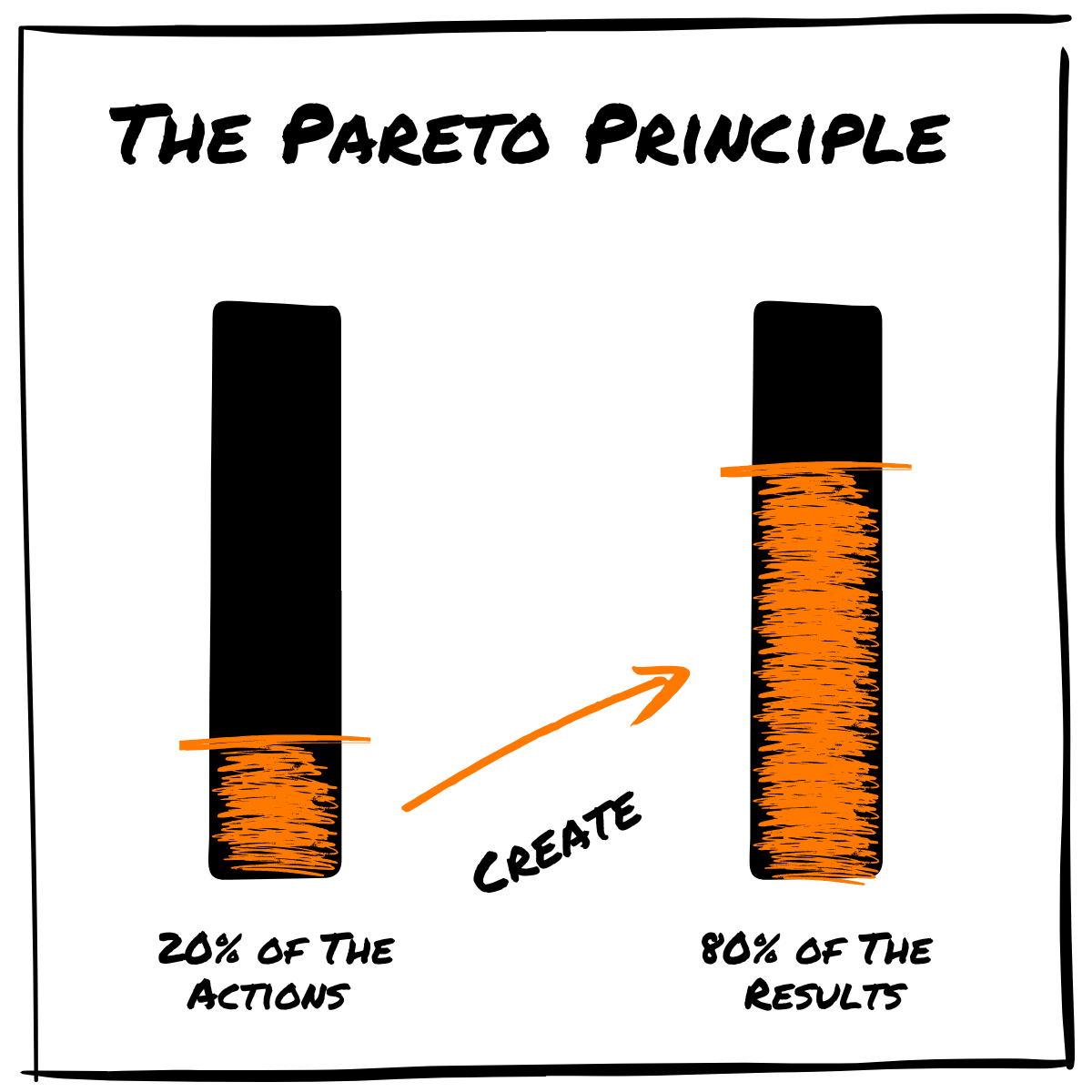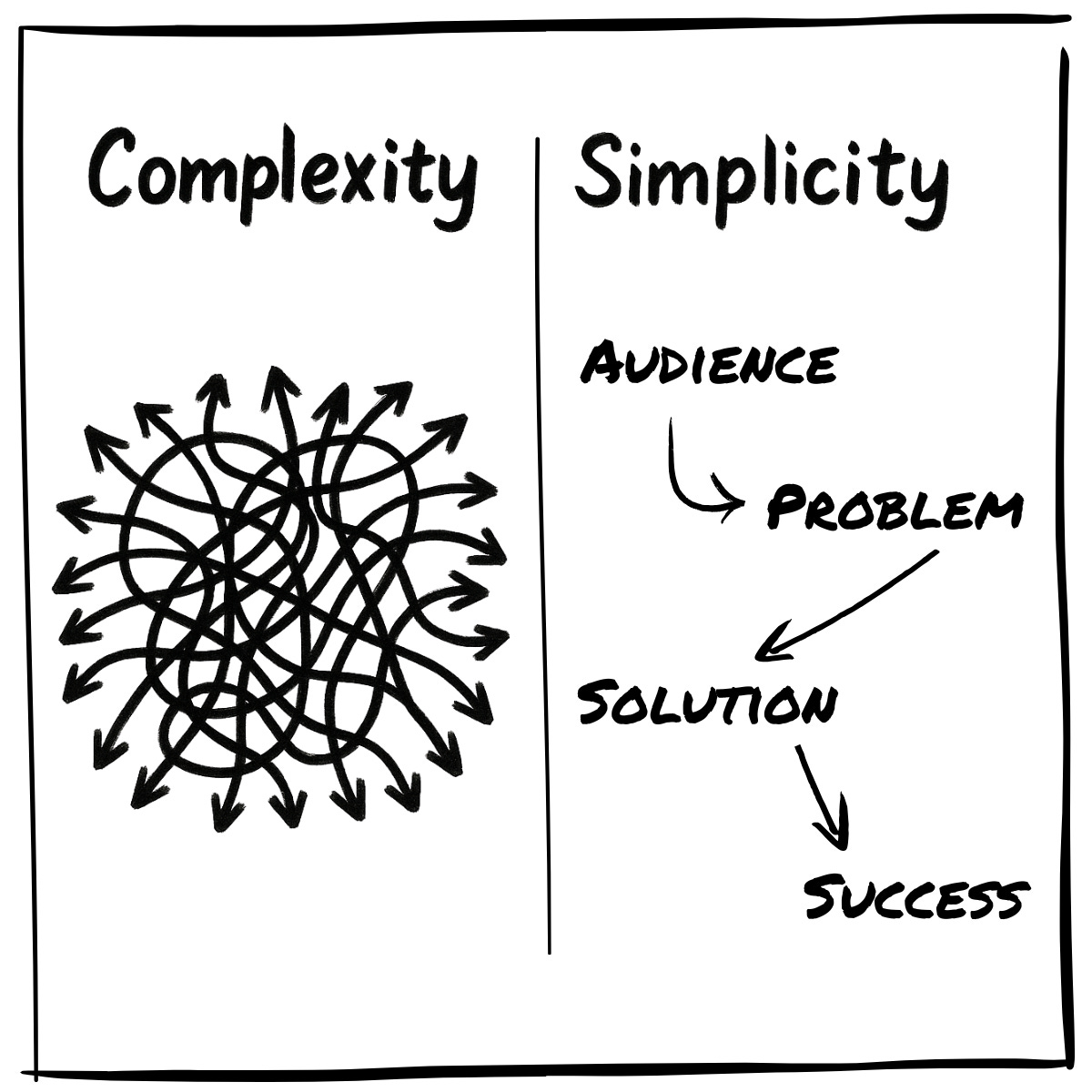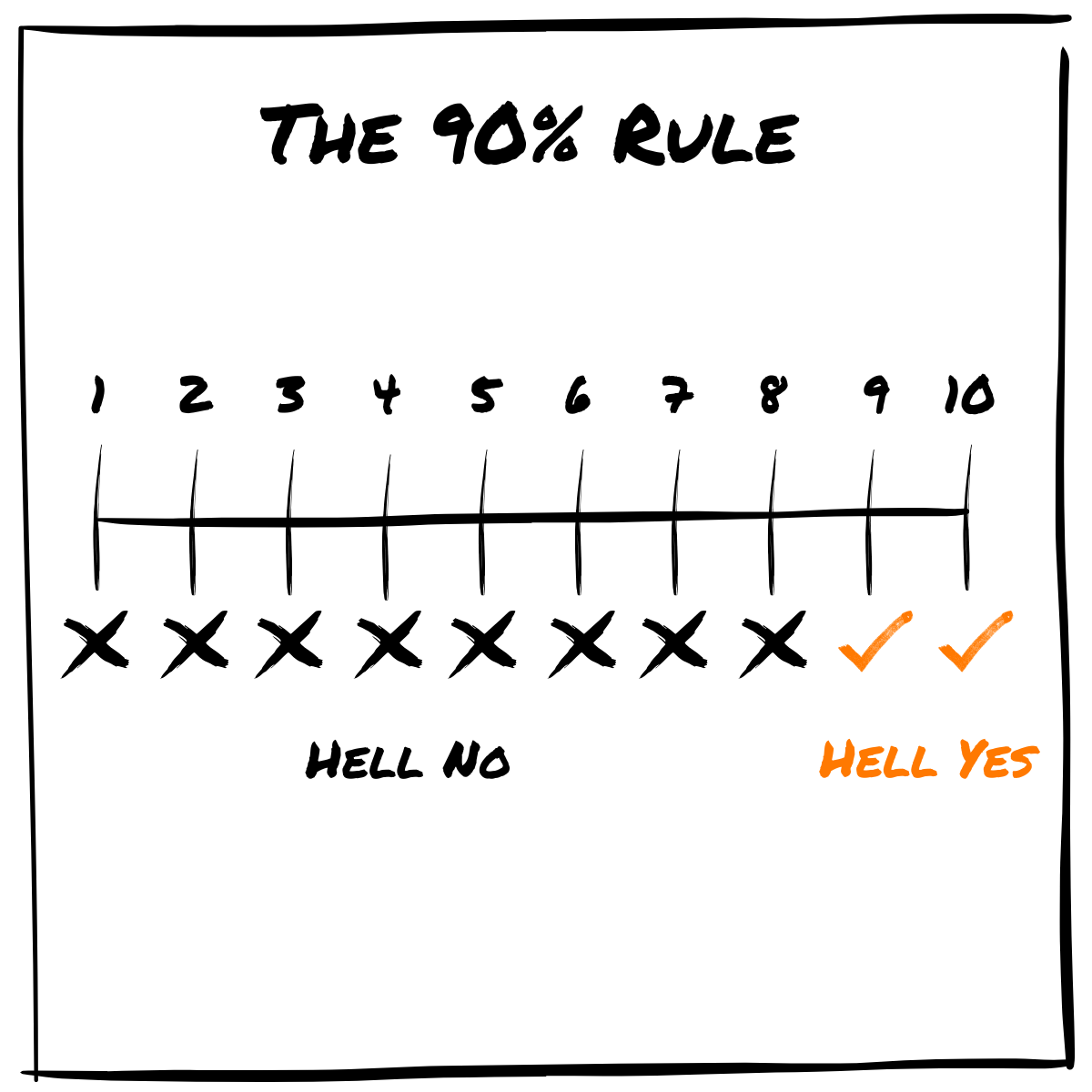Hey friends,
Today’s guest post comes from my friend Chris DuBois, who’s worked with dozens of B2B agencies on scaling their marketing.
Chris makes a sharp point that most of us don’t want to hear: your marketing isn’t sophisticated, it’s just complicated. He breaks down the math behind why agencies drown in complexity, why the 80/20 rule matters more than we admit, and why picking two channels (not one, not five) is often the key to growth.
If your marketing feels like it’s always busy but never effective, this piece will hit home.
Enjoy,
Garrett
I've watched countless agencies burn through budgets, exhaust their teams, and still miss their targets. And almost every time, the problem isn't their strategy, their creativity, or even their budget.
Its complexity.
Most agencies (and businesses in general) are running marketing campaigns that would make a NASA mission planner dizzy. They're targeting everyone, trying to solve every problem, and spreading their efforts across so many channels that nothing gets the attention it deserves.
Here's the truth nobody wants to hear: your marketing isn't sophisticated. It's just complicated. And there's a massive difference.
The math that's killing your campaigns
Let me paint you a picture that might sound familiar. Your agency helps e-commerce brands, SaaS companies, and local businesses. You solve their content problems, their lead generation issues, and their conversion challenges. You offer social media management, SEO services, paid ads, email marketing, and website development.
Congratulations, you just created 45 different variables to manage.
Think about it: 3 audiences times 3 problems times 5 solutions equals 45 different message combinations. Add in 3 different channels for each, and you're looking at 135 variations.
Now compare that to the agency that says, "We help FinTech SaaS companies generate more qualified leads through content marketing." It’s not the sexiest, but that's one audience, one problem, one solution. One variable.
Which business do you think is easier to run?
I've seen this play out over and over. The agencies with laser focus consistently outperform the ones trying to be everything to everyone. Not because they're smarter or more talented, but because they can put all their energy behind one clear message.
When you focus on one audience, your content becomes surgical. You understand their exact pain points, their language, their objections. You become the obvious choice instead of just another option.
The 80/20 rule isn't just theory
Here's something that took me way too long to learn: there are probably two or three things driving most of your results, and you're spending equal time on everything else.
The Pareto Principle isn't just some business school concept. It's math, and it's happening in your business whether you acknowledge it or not. About 20% of your activities generate 80% of your outcomes.
The problem is, most agencies never actually figure out what that 20% is. They just keep doing everything at the same level of intensity, wondering why they're not getting better results.
I started tracking this in my own work. Turns out, two activities were driving the majority of our new business: speaking on podcasts and publishing on LinkedIn. Everything else was basically noise.
Once I realized this, the decision became obvious. Double down on speaking opportunities and content creation. Cut back on the networking events that weren't converting. Stop spending time on social media platforms where our audience isn't active.
The result? Better results with less effort. More qualified leads with fewer activities.
The not-so-secret is that you have to actually measure this stuff. You can't just guess what your 20% is. Track your activities, measure your outcomes, and be honest about what's actually working.
Why two channels is the magic number
Most agencies I know fall into one of two traps. Either they're completely dependent on referrals, or they're spreading themselves across every channel imaginable.
The referral-dependent agencies are living on borrowed time. I get it, referrals are great. They're high-quality leads that close at a higher rate. But if your entire business model depends on word-of-mouth, you're one bad quarter away from serious trouble.
On the flip side, I see agencies trying to maintain a presence on LinkedIn, Instagram, Twitter, TikTok, email, paid ads, SEO, podcasting, and content marketing all at once. They're doing everything poorly instead of doing a few things well.
Here's what I've learned: one channel is too risky, but five channels is too complicated. Two channels is the sweet spot (expand after you’re crushing those if you want).
Pick two channels where your audience actually lives, and commit to doing them exceptionally well. Maybe it's LinkedIn and email marketing. Maybe it's SEO and speaking engagements. Maybe it's partnerships and content marketing.
The specific channels matter less than your commitment to excellence in whatever you choose. I'd rather have a killer LinkedIn strategy and a solid email list than mediocre performance across six different platforms.
This approach gives you stability without overwhelming complexity. If one channel has a bad month, you've got backup. But you're not spreading yourself so thin that nothing gets the attention it deserves.
Simplicity is your scaling superpower
Here's something most people get wrong about scaling: it's not just about getting more clients.
Scaling can mean working fewer hours for the same money. It can mean maintaining your current workload while increasing profitability. It can mean handling twice as many clients without doubling your stress level.
But none of that happens if your systems are complex.
Complex processes don't scale. They break. Complex messaging doesn't scale. It confuses people. Complex service offerings don't scale. They create operational nightmares.
Simple systems, on the other hand, can be documented, taught, and replicated. Simple messages can be understood and shared. Simple services can be delivered consistently.
The agency owners who can’t get out of sales? It might be because you’ve got so many variables in your process that someone else can’t figure it out.
Take you 90 days to onboard a new team member, and they’re still shaky? Your agency is doing too much, and it’s making it impossible for them to learn.
Agencies sell complexity by reducing it to its simplest form. But if you can’t maintain the simplicity within your own business, you’re screwed.
The 90% rule that changed everything
I picked this up from Greg McKeown's book "Essentialism," and it's probably saved me more time and energy than any other decision-making framework.
Here's the rule: if an opportunity isn't a 9 out of 10, it's automatically a no.
Most of us operate with a much lower bar. We say yes to 6 out of 10 opportunities because they're "pretty good" or because we're afraid we'll miss out on something.
But here's what happens when you have a low bar: you fill your calendar with mediocre opportunities, leaving no room for the exceptional ones.
I started applying this to everything. Client prospects, speaking opportunities, partnership deals, new service offerings. If it wasn't a clear 9 out of 10, I passed.
The immediate effect was obvious. I had more time. But the long-term effect was even better. The quality of everything improved. Better clients, better opportunities, better results.
This rule forces you to get clear on what actually matters. It makes saying no easier because you have a concrete framework instead of trying to evaluate every opportunity from scratch.
The hidden cost of complexity
There's something most agencies don't consider when they're building their marketing strategy: cognitive load.
Every additional audience you target requires mental energy to understand and serve. Every additional channel requires time to learn and maintain. Every additional service offering requires systems to deliver consistently.
That mental energy and time come from somewhere. Usually, it's from doing your best work.
I see agencies where the leadership team spends more time managing complexity than actually serving clients. They can’t figure out why no one gets it, but they’re the only people in the company who do. There’s a common denominator.
Meanwhile, their focused competitors are getting better and better at their one thing. They're building deeper expertise, stronger systems, and clearer positioning.
Complexity doesn't just make your marketing less effective. It makes your entire business less effective.
Start subtracting, not adding
Most agencies approach marketing problems by adding more. More channels, more content, more targeting options, more features.
The agencies that win approach problems by subtracting. What can we eliminate? What can we simplify? What can we stop doing so we can do fewer things better?
This is harder than it sounds because it requires making choices. It requires saying no to things that might work so you can focus on things that definitely work.
But that's exactly why it's powerful. While your competitors are spreading themselves thin trying to capture every possible opportunity, you're becoming the obvious choice for the specific opportunity you've chosen to own.
Start with your messaging. Pick one audience and get crystal clear on exactly how you help them. Then pick two channels and commit to doing them exceptionally well. Then apply the 90% rule to every new opportunity that comes your way.
The goal isn't to do more marketing. It's to do marketing that actually works.
And the path to marketing that works isn't through complexity. It's through the power of keeping things simple.
Chris DuBois coaches marketing agencies on nailing their positioning, creating compelling offers, and developing sustainable marketing strategies. With years of experience running and guiding agencies, Chris takes a systematic approach to untangling business complexity and helping founders thrive. Connect on LinkedIn or visit www.dynamicagencyos.com.






